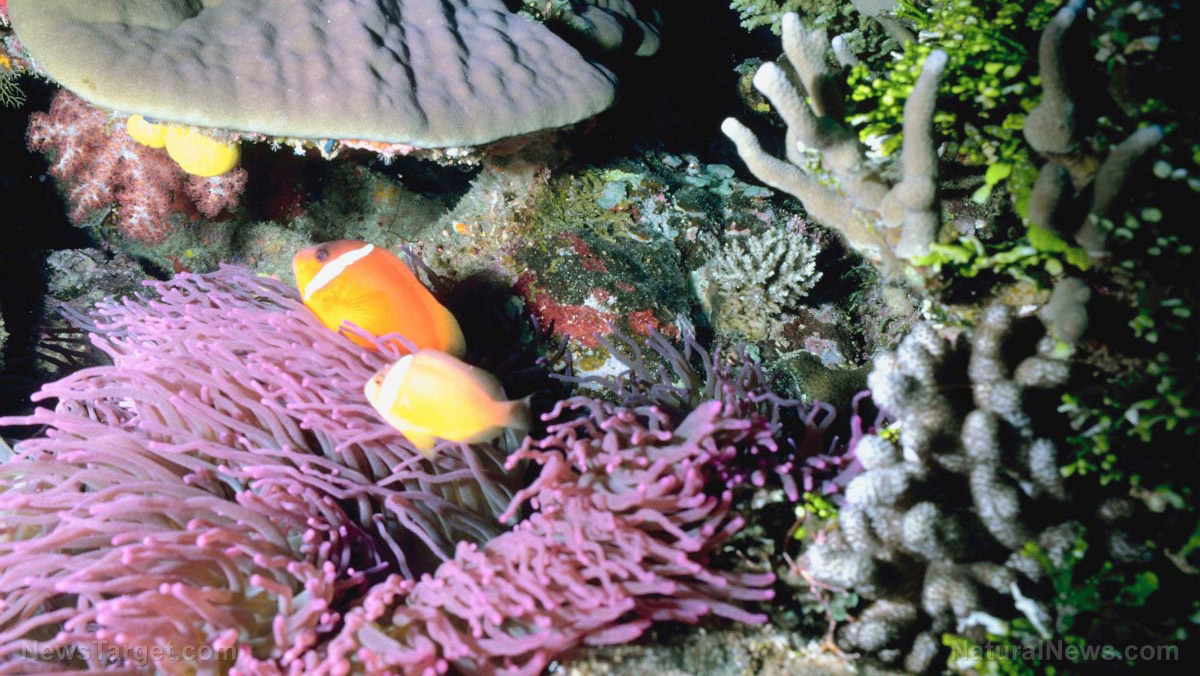Mitigating the effects of ocean acidification: Conservation of shoreline plants and seaweed could preserve coral and shellfish habitats
06/08/2018 / By Zoey Sky

According to a study by ecologists from the University of California, Irvine (UCI), marine vegetation can help minimize ocean acidification.
Based on the results of the study, marine plants and seaweeds that live in shallow coastal ecosystems may have a crucial role in helping address the aftermath of ocean acidification. Thriving marine life in shoreline environments may even help preserve declining shellfish life.
The study results can be viewed online in the open-access Scientific Reports.
For the recent study on the Pacific Coast, Nyssa Silbiger, a former UCI postdoctoral researcher, and Cascade Sorte, assistant professor of ecology & evolutionary biology, discovered that both marine plants and seaweeds could help minimize the acidity of their surroundings via the process called photosynthesis.
Silbiger and Sorte’s findings imply that preserving the local marine vegetation could help lessen the acidifying effects of increasing carbon dioxide (CO2) levels on marine life that are sensitive to ocean pH. (Related: Reef fish found to be surprisingly resilient to ocean acidification caused by carbon dioxide (climate change).)
Ocean pH levels have gone down since pre-industrial times.
Sorte explained that based on the findings of their study, which examined at least 1,000 miles of coastline, marine life is integral when it comes to influencing local pH conditions.
Almost 90 percent of fishery catch is from coastal ecosystems. But any coastal pH decrease will significantly affect marine life like corals, oysters, and mussels since they have shells and skeletons that turn more brittle in low-pH environments.

This can negatively affect shellfish fisheries, which contribute more than $1 billion every year to the U.S. economy. The shellfish fishing industry also provides over 100,000 jobs.
The authors cautioned that based on the study results, extensive efforts must be made to protect marine plants and seaweeds in shoreline habitats, especially in areas where commercial seafood is harvested.
Silbiger, who is now an assistant professor of biology at California State University, Northridge, said that ocean acidification is causing dire environmental and economic consequences. She added that the best way to preserve marine ecosystems is to lower CO2 emissions, but that their research suggests that marine life can also greatly influence coastal pH.
How to minimize ocean acidification
Even though it is impossible to stop ocean acidification completely, everyone can take part to help reduce its effects. Most methods involve lowering carbon emissions, which are eventually absorbed by the ocean.
Once CO2 reacts with the water, carbonic acid is formed. This reaction reduces the concentration of the carbonate ion and makes seawater more acidic. When the acidity of water is increased, corals and shellfish have a harder time building their skeletons and shells since they both require carbonate ions to do so.
While it may seem daunting, you can contribute in small but meaningful ways to help minimize ocean acidification:
- Try to eat less red meat. This will help lower farming emissions since on a global scale; they are greater than transport emissions.
- Get everyone in your home to conserve energy and water. Fix leaky taps or pipes, install a solar hot-water system if you have the means to do so, turn off devices and lights when you’re not using them, and opt for energy efficient appliances and light bulbs.
- Use more eco-friendly power sources. When possible, use renewable energy.
- Make smart life choices. If you believe the company you work for is contributing to pollution in any way, take the time to suggest more eco-friendly ways to accomplish certain tasks such minimizing printouts or sending email newsletters instead of printing copies that waste energy, ink, and paper.
Read more articles on environmental harm and how we can minimize it at Environ.news.
Sources include:
Submit a correction >>
Tagged Under:
This article may contain statements that reflect the opinion of the author





















